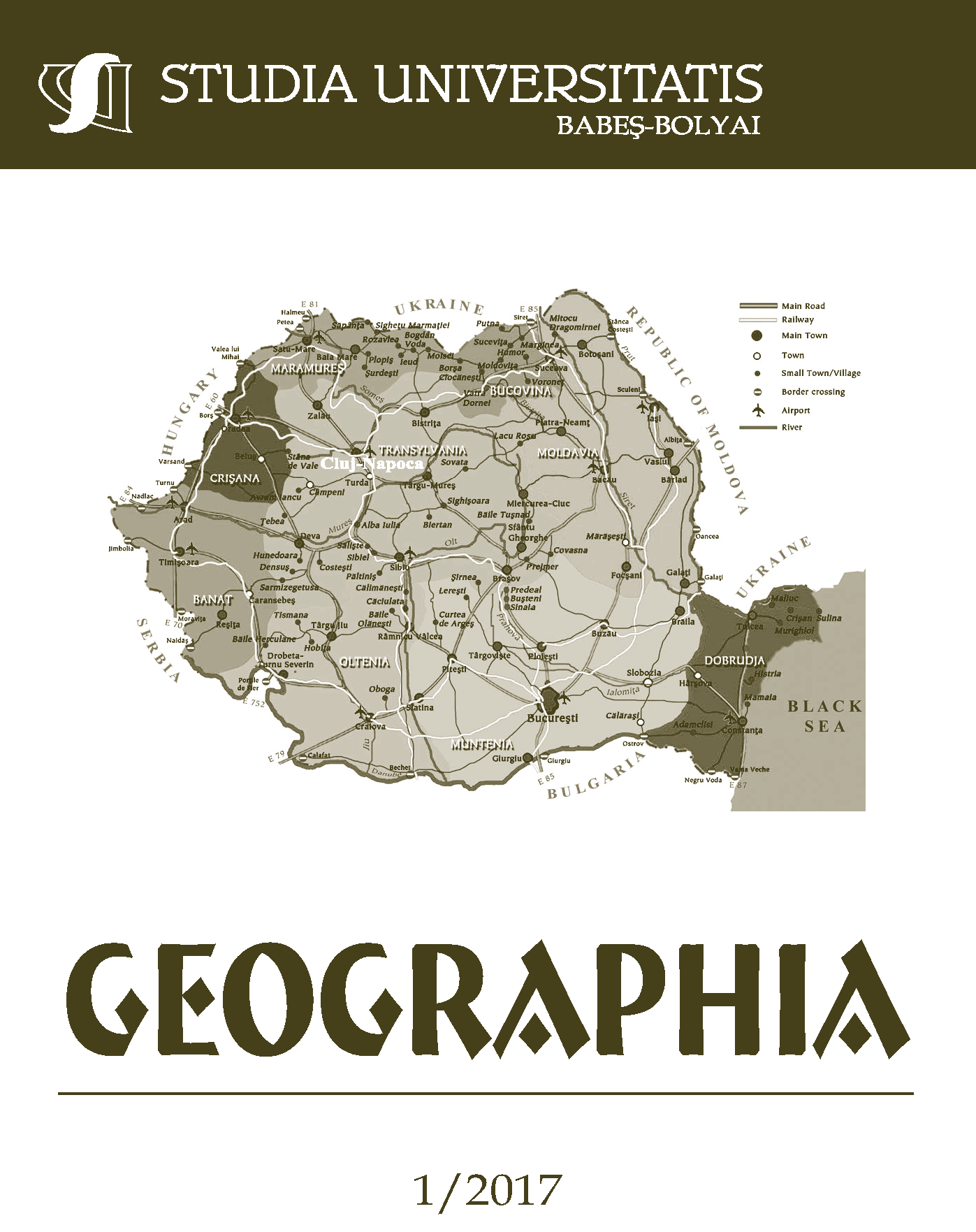GEOENVIRONMENTAL IMPACT STUDIES FOR HYDRO-ENERGY PROJECTS: NARYN RIVER IN KYRGYZSTAN
DOI:
https://doi.org/10.24193/subbgeogr.2017.1.04Keywords:
water resources, hydroelectric potential, hydro-power plant, Naryn River, geoenvironmental impact.Abstract
Kyrgyzstan is the only country in Central Asia where water resources are fully formed in its own territory; these are its hydrological features and benefits. The country has considerable water and hydropower resources on its territory. There are over 25 thousand rivers and streams flowing from the mountains to the surrounding valleys carrying more than 50 cubic km annual water volume. The mountain rivers have a huge potential of water and hydro energy resources allowing Kyrgyzstan to reduce the traditional energy consumption. The hydro-energy projects enforces the socio-economic development of regions to meet the needs in the water, energy, flood control, etc., on the other hand they have a negative impact on the environment. Intensification of landslides, reservoir–induced seismicity, rise of groundwater level and land erosion and other environmental hazards need detailed investigations before, during construction and exploitation of hydropower stations. The geoinformation systems (GIS) and remote sensing technologies are recommended in the geoenvironmental impact studies of hydro-energy projects in the Naryn river basin. The efficiency in the use of integrated information systems created by combining the capabilities of GIS and remotely sensed data confirmed by numerous examples of successful use in practice, e.g. in the modeling of technical, natural and climate parameters to avoid disasters.References
Bulgakova, T. Ju., VovkI, G. (2014). The system-oriented approach to the analysis of spatial-temporal condition oftechnogenic systems. Interexpo Geo-Siberia. Number 1 / Volume 1.
Jasinski, V.A., Mironenkov A.P., Sarsembekov, T.T. (2011). A modern condition and prospects of development a small hydropower in the CIS countries, Industrial Overview, №14. Eurasian Development Bank. Almaty, p. 36.
Kasymova V.M., Arkhangelskaja A.V. (2011). Energy Security of Kyrgyzstan and the development of intergovernmental energy connections in the Eurasian Economic Community (Central Asia). Eurasian Economic Integration, №3 (12), p. 46.
Kasymova, V.M., Baetov, B. (2007). Energy of Kyrgyzstan: condition of the sector and prospects for intergovernmental cooperation, Central Asia and the Caucasus, № 6 (54), p. 116-127.
Kiselevskaja, K.E. (2009). Application of the method of remote sensing for environmental monitoring, Mountain Informational and Analytical Bulletin. №1, p. 188-190.
Lipkin, V.I., Bogombaev, E.S. (2007). Micro hydro power plants: Manual usage, Bishkek, 30 p.
Mamatkanov, D.M., Bazhanova, L.V., Romanovsky, V.V. (2006). Water Resources of Kyrgyzstan at the present stage, Ilim, Bishkek, 276 p.
Rahimov, K.R. (2010). Kyrgyzstan Power lines, particular qualities, methods of calculation and management, KSTU named after I. Razzakov, IC "Teknik", Bishkek, 151 p.
Shakhramanyan, M.A. et al. (2003). Application of GIS technologies for flood hazard predicting. Civil Security Technologies. № 1-2, p. 62-68.
Shishkin, I.N., Skugarev, A.A. (2014). Application of geoinformation technologies for monitoring and evaluation the consequences of emergencies, Reports of TUSUR, № 2 (32), p. 276-280.
Program of complex monitoring and forecasting of natural hazard processes with the application of GIS and remote sensing in the 2015-2017 years, Erkin Too, May 5, 2015, № 40.
Transparency initiative of the fuel and energy complex of the Kyrgyz Republic. http://www.energoforum.kg/
Downloads
Published
How to Cite
Issue
Section
License
Copyright (c) 2017 Studia Universitatis Babeș-Bolyai Geographia

This work is licensed under a Creative Commons Attribution-NonCommercial-NoDerivatives 4.0 International License.


 ©Studia Universitatis Babeş-Bolyai Geographia. Published by Babeș-Bolyai University.
©Studia Universitatis Babeş-Bolyai Geographia. Published by Babeș-Bolyai University.